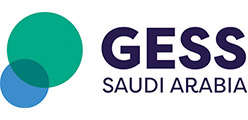Qatar now spends $6bn a year on the sector, just over 4 percent of GDP.
If any proof were needed as to the importance of education for the future of the Gulf, then look no further than national budgets. Qatar now spends $6bn a year on the sector, just over 4 percent of GDP. In Saudi Arabia, spending this year will soar to $54bn, a 21 percent gain on last year, and the single biggest annual expenditure increase on education since the 1970s. The UAE will spend $2.7bn on the sector in 2013, with the sum taking up 22 percent of the country’s budget.
Shiny new universities are springing up as a result. The UAE has its Masdar Institute of Science and Technology, Saudi Arabia has the King Abdullah University for Science and Technology and the giant women-only Princess Noura Bint Abdulrahman University, while Qatar has attracted a slew of international institutes to its Education City campus on the outskirts of Doha.
All around the Gulf, countries are spending heavily as they seek to educate younger populations with the skills needed to cope in a modern workforce. Public expenditure on education in the region amounts to around 18.6 percent of government spending, as opposed to a world average of 14.2 percent, according to the latest data from the World Bank.
Some of this cash is going towards revamping the schools system, while some is boosting vocational training — i.e. making sure that when students leave education, they are actually suited to the workforce.
If any proof were needed of Qatar’s ambitions to foster its own human capital, then look no further than Education City. First launched in 1998 by the Qatar Foundation, the project now features nine world-class universities.
“Qatar has become a successful example of Arab foreign policy,” said former US ambassador Edward Djerejian, in a speech delivered on his visit to Education City earlier last year.
“Qatar is one of the few countries in this part of the world that has made the decision to invest in developing a society based on knowledge. The country’s leaders are not sitting down satisfied with what today’s landscape looks like, but are looking towards the future and working to transform the country into a knowledge-based economy for future generations.”
Of course, getting the signature of top universities — such as Carnegie Mellon, Northwestern University and Georgetown — is really only the beginning of the battle. The big names need to continue committing their resources well after launch.
In the nearby UAE, several Western universities have shut up shop after initial funding dried up. Michigan State University closed its Dubai campus in July last year after losing millions of dollars over its two-year stint, while George Mason University shut its Ras Al Khaimah campus in 2009.
According to one expert, some schools didn’t have the long-term plan needed to sustain their operations.
“Knowledge cities become a prestige initiative for governments and they look for brand names to come in that are not connected with the degree offerings that the local market place has,” Robert Lytle, co-head of US consultancy Parthenon Group’s Education Centre of Excellence, said, at the time.
“They [universities] don’t often pay enough fundamental attention to supply-demand… and they don’t really get what the right offering and right price point is,” Lytle added.
Arabian Business Read More: http://www.arabianbusiness.com/back-school-510187.html






